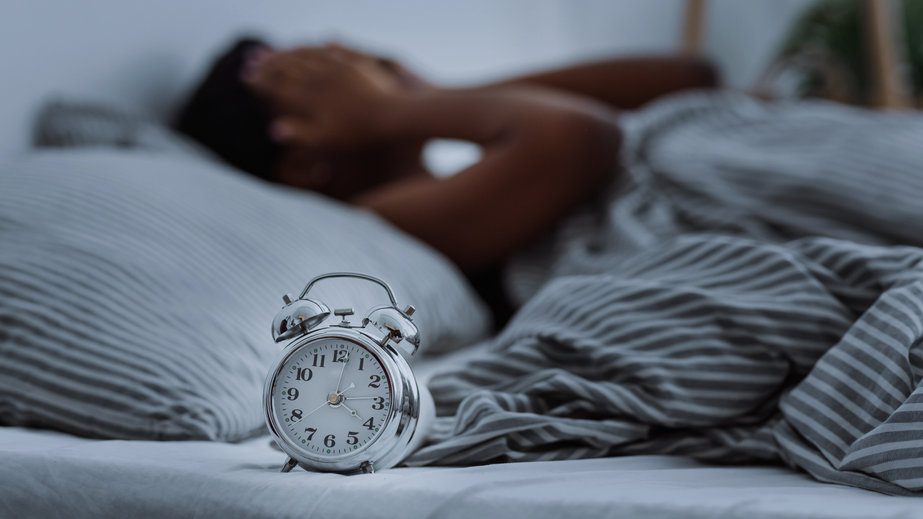
You will be amazed by the number of people that have sleep disorders but do not have an idea. Unknowingly, we have attributed late nights, lack of enough sleep, and staying up late into the night as a sign of arduous work and normalized this slow poison into our lives.
Sleep disorders are conditions that disturb your normal sleep pattern. Stress, anxiety, poor sleeping habits, and depression are a few risk factors for sleep disorders as the list is endless but as individuals, we have more roles to play in preventing this menace. Our lifestyle choices influence the result of our health, and this is the reason health experts advise that we are intentional about what we do to and with our bodies.
While some sleep disorders may not pose serious threats immediately, they can cause long-term damage and health complications if left untreated. Several misconceptions around sleep disorders and their causes have also caused many to handle the issue wrongly or too late.
However, before we can nip this problem in the bud, these common misconceptions and myths need to be debunked. These include:
- Alcohol guarantees a good night sleep
Ever heard something like “I go shayo today ehn so I go enjoy my sleep wella,” well sorry but no sorry because alcohol does not in any way improve your sleep. While alcohol can make one feel drowsy, it impacts sleep-wake cycles, impairs deep sleep, and cause you to have an inadequate quality of sleep.
- Sleep disorders are not related to health conditions
Sleep disorder like other abnormalities is closely related to health conditions. For instance, there is a link between sleep disorders and hypertension likewise depression and insomnia. Also, aggravation of hypersomnia, a sleep disorder happens when epilepsy and obesity exist. Really, most times when you suffer from a sleep disorder, there are other underlying conditions.
- Snoring is a normal issue, but is not harmful
It is sad that we have normalized “snoring” when in fact this can be a sign of a serious health condition called Sleep Apnea which causes a temporary obstruction to the air pathway thereby allowing intermittent periods of not breathing. Obesity, heart failure, kidney failure, premature birth, genetic predisposition, having large tonsils, etc. are some triggers of sleep apnea and people diagnosed with this disorder are highly predisposed to other complications like asthma, diabetes, and high blood pressure (in pregnancy too), learning disabilities (in children), heart attack, cancer, etc.
- You can make up for lost sleep on weekends
Honestly, why did we ever think we could cheat the amount of sleep we should be getting or make up for lost sleep later, (lol). According to research, an individual cannot make up for their sleep debt or poor sleeping pattern by sleeping well enough on weekends.
In a study conducted in 2019 by the National Institute of Health in the US where they assessed the effects of sleep deprivation on an individual’s metabolism, the study was conducted on two groups of people that suffer from chronic sleep deprivation. They saw a significant decrease in sensitivity to insulin within two weeks in the first group. For the second group, the test subjects were allowed to make up for their lost sleep by sleeping extra during weekends, however, a significant decrease in insulin sensitivity was also observed despite the attempt to make up for lost sleep.
This goes to show that no matter how we try to make up sleep, we cannot counteract the detrimental effects of sleep deprivation.
- The older you get, the less sleep you need
Oh yes, somehow, we also think adults are superhumans and they do not need to get adequate sleep right. This is one of the different misconceptions that are harmful to our health. It is true that older people need less amount of sleep compared to younger ones, however, the amount of sleep still needs to be substantial and meet the standard. Most adults need between 7-8hours of sleep every night to help their body function optimally.
Now that we have cleared a few misconceptions and we are on the same page that sleep disorder is a significant issue that needs our attention, we will go on to discuss symptoms of sleep disorder that you may recognize. Identifying with any or a mix of these symptoms allows you to take one step closer to doing the right thing by getting yourself treated.
A few of these symptoms include:
- If it takes you a long time to fall asleep at night e.g., about 30 minutes.
- It is a problem if it is a pattern for you to wake up multiple times at night and find it difficult to go back to sleep or wake up too early in the morning.
- Do you frequently get drowsy during the day and fall asleep at the wrong times during the day? This is a clear sign.
- You snore loudly, snort, gasp, make choking sounds, or stop breathing for short periods during sleep.
- Having creeping, tingling, or crawling feelings in your legs or arms that are relieved by moving or massaging them, especially when trying to fall asleep at night.
- Leg or arms jerk often during sleep.
- Vivid dreamlike experiences while falling asleep or dozing.
- The feeling of sudden muscle weakness every time you laugh, feel angry or fearful.
- Inability to move when you first wake up.
If you experience any of these symptoms or other uncomfortable symptoms, you should take the next step to see a doctor and get the necessary treatment. Consider a combination of medical treatments and lifestyle changes below to treat sleeping disorders:
- Medical Treatments
- Usage of medicines which include sleeping pills prescribed by a doctor for a brief period to treat a sleeping disorder.
- The intake of natural products that contain melatonin as prescribed by a doctor in the short term as a treatment.
- Prescription of medications for underlying health issues.
- The use of a breathing device, surgery, or CPAP machine (continuous positive airway pressure) to specifically treat sleep apnea.
- Lifestyle Changes
- Practice good sleep habits, create a regular sleeping schedule, make sure to take adequate rest always, and make it a priority irrespective of life demands.
- Bright light therapy in the morning.
- A healthy diet is important. Eat and add more vegetables and fish to your meals, reduce intake of sugar and take less water before bedtime.
- Exercising regularly and cognitive behavioral therapy/relaxation techniques to help reduce stress and anxiety.
- Quit tobacco and alcohol or decrease alcohol consumption to the barest.
- Healthy weight management based on your doctor’s recommendation will be a good practice too.
Finally, we understand that for some people, sleep comes easy and naturally while for others it is a problem to get quality sleep. We have talked through misconceptions, causes, symptoms, and treatment of sleep disorders, please consult a doctor if you think you might have a sleep disorder.










